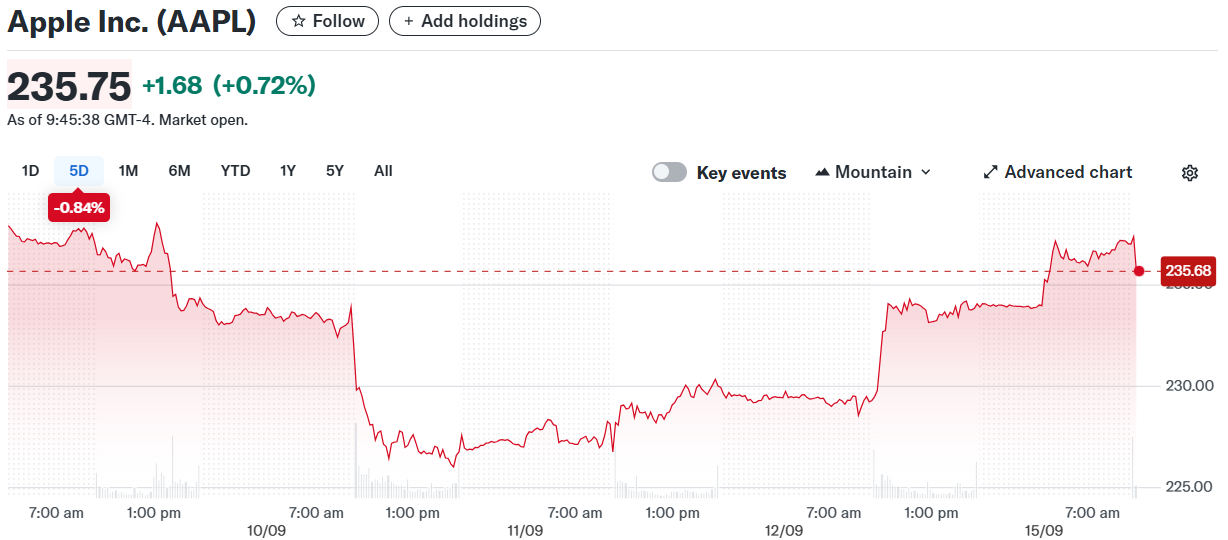TLDR
- Jim Cramer already ordered his iPhone 17 Air and maintains bullish stance on Apple stock
- Apple dropped 1.5% after iPhone launch but historically gains 13% average in following year
- Company called “serial repurchaser” for buying back stock at 4% annual rate
- iPhone 17 Air features ultra-thin design with price increases buffered by carrier subsidies
- Cramer recommends owning Apple long-term rather than trading on launch volatility
Apple stock slipped 1.5% following the iPhone 17 Air launch, but CNBC’s Jim Cramer isn’t backing down. The veteran host revealed he’s already placed his pre-order for Apple’s newest device.
The iPhone 17 Air impressed with its ultra-thin profile. Apple positioned the device as the slimmest iPhone ever created.

Price increases accompanied the launch, though Cramer noted they weren’t as steep as expected. Wireless carriers heavily subsidize these phones, reducing the consumer impact.
Apple stock’s post-launch decline follows a predictable pattern. Shares have dropped or stayed flat after iPhone announcements in four of the past five years.
Cramer doesn’t view launch day performance as meaningful. He calls it a typical “sell the news” event where investors take profits.
Historical Data Supports Long-Term Gains
The real story emerges in the following 12 months. Apple stock has rallied an average of 13% in the year after iPhone launches over the past five years.
The track record shows consistency. Apple shares gained ground in every single post-launch year during this period.
“13% in the year after new iPhone launch, that’s what I call real money,” Cramer stated. He used this data to justify his bullish position on the stock.
Cramer specifically recommended owning Apple rather than trading it. The historical performance data backs his long-term investment thesis.
Stock Buyback Program Signals Confidence
Apple’s aggressive share repurchase program caught Cramer’s attention. He labeled the company “addicted to buying back its own stock.”
The tech giant repurchases approximately 4% of outstanding shares annually. Cramer interprets this as management signaling the stock is undervalued.
He called Apple a “serial repurchaser” that consistently returns cash to shareholders. This buyback activity provides ongoing support for the share price.
The iPhone 17 Air launch timing aligns with Apple’s repurchase program. Cramer sees this combination as potentially driving shares higher.
Apple’s partnership with Corning also factored into Cramer’s analysis. CEO Tim Cook visited Corning’s factory to highlight their glass manufacturing relationship.
Apple invested $2.5 billion in Corning for iPhone screen glass production. Cook stated every iPhone sold globally uses glass from Corning’s Harrodsburg facility.
The iPhone 17 Air emphasizes camera and video capabilities. These features target consumers prioritizing mobile photography and content creation.
Carrier subsidies help offset the device’s price increases. This pricing structure maintains accessibility while protecting Apple’s profit margins on the premium product.





